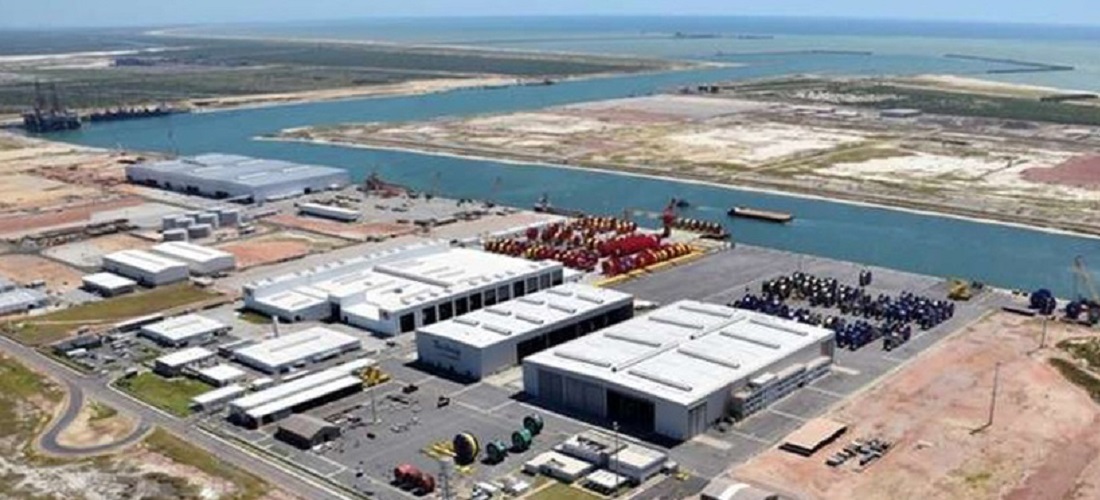
Açu Port pledges green hydrogen, ammonia production for marine fuel
Aug, 08, 2023 Posted by Gabriel MalheirosWeek 202333
Nestled between São João da Barra and Campos dos Goytacazes in the northern reaches of Rio de Janeiro state, the Açu Port complex has taken a significant stride by embracing the United Nations (UN) Global Compact initiative, signifying a resolute move towards sustainability. Notably, the Ocean Business Working Group has emerged as a vanguard corporate entity aimed at propelling energy transition within port and maritime operations.
Drawing on insights from the Açu port complex, the fundamental mission of this group revolves around dissecting energy transition and decarbonization scenarios within domestic and international maritime and port sectors. It keenly zeroes in on identifying pertinent opportunities and challenges that resonate with Brazil’s unique context.
With participation already exceeding 30 companies, discerning studies indicate that merely two entities are actively erecting infrastructures engineered to accommodate vessels powered by biomethane, ammonia, biogas, and green hydrogen — an elite circle of which Açu’s facilities are an integral part.
In this context, José Firmo, CEO of Porto do Açu Operations, accentuates the pivotal role harbors play in propelling global decarbonization ambitions. They provide the bedrock infrastructure essential for alternative fuel production, storage, and seamless supply to maritime fleets.
Firmo envisions Açu as a direct contributor to steering Brazil ahead in the energy transition paradigm. He underscores the indispensability of integrating stakeholders harmoniously, a role underscored by the pivotal relevance of this working group to the nation’s trajectory.
Carlo Pereira, CEO of the UN Global Compact in Brazil, underscores the fundamental role maritime transport and port operations hold in the onward journey towards a carbon-neutral ethos. He underscores the critical need for proactive involvement to harness Brazil’s inherent potential and transform it into a potent competitive asset.
Relevantly, Açu’s advisory body provides insights: “Currently, in the world, the shipping sector accounts for about 80% of the volume of global trade and is responsible for approximately 3% of global GHG emissions (Greenhouse gases).”
Açu’s strides in the sustainability realm have been remarkable. In 2021, it formally aligned itself with the Global Compact, thus assuming a steadfast role in contributing to the fulfillment of the 17 Sustainable Development Goals (SDGs). Concurrently, it pledged to provide annual progress reports on these objectives.
In September of the same year, Açu achieved an impressive milestone by becoming the inaugural Brazilian recipient of EcoPorts certification, an esteemed global accolade that signifies exemplary environmental management in the port sector. This commemoration coincided with the one-year anniversary of Açu Operations’ newly minted sustainability strategy, crafted through robust collaboration with the stakeholders of Prumo Logística and Porto de Antwerp Internacional. This harmonious alliance poignantly underscores Açu’s collective determination to chart a course toward a more sustainable future.
Source: O Dia
To read the original story, please visit: https://odia.ig.com.br/sao-joao-da-barra/2023/08/6686378-porto-do-acu-aposta-na-producao-de-hidrogenio-e-amonia-verdes-para-combustivel-maritimo.html
-
Other Logistics
Feb, 08, 2023
0
5% fee adjustment is approved on the north-south railway
-
Shipping
Jan, 11, 2023
0
Hapag-Lloyd: New hub in the eastern Mediterranean
-
Fish
Jul, 02, 2019
0
Argentine seafood sector is boosted by EU-Mercosur Agreement
-
Steel and Aluminium
Feb, 13, 2019
0
Brazil prepares to retaliate against EU’s protectionist measures on steel


